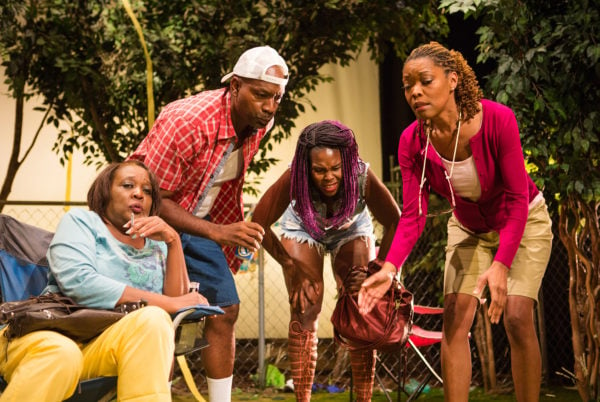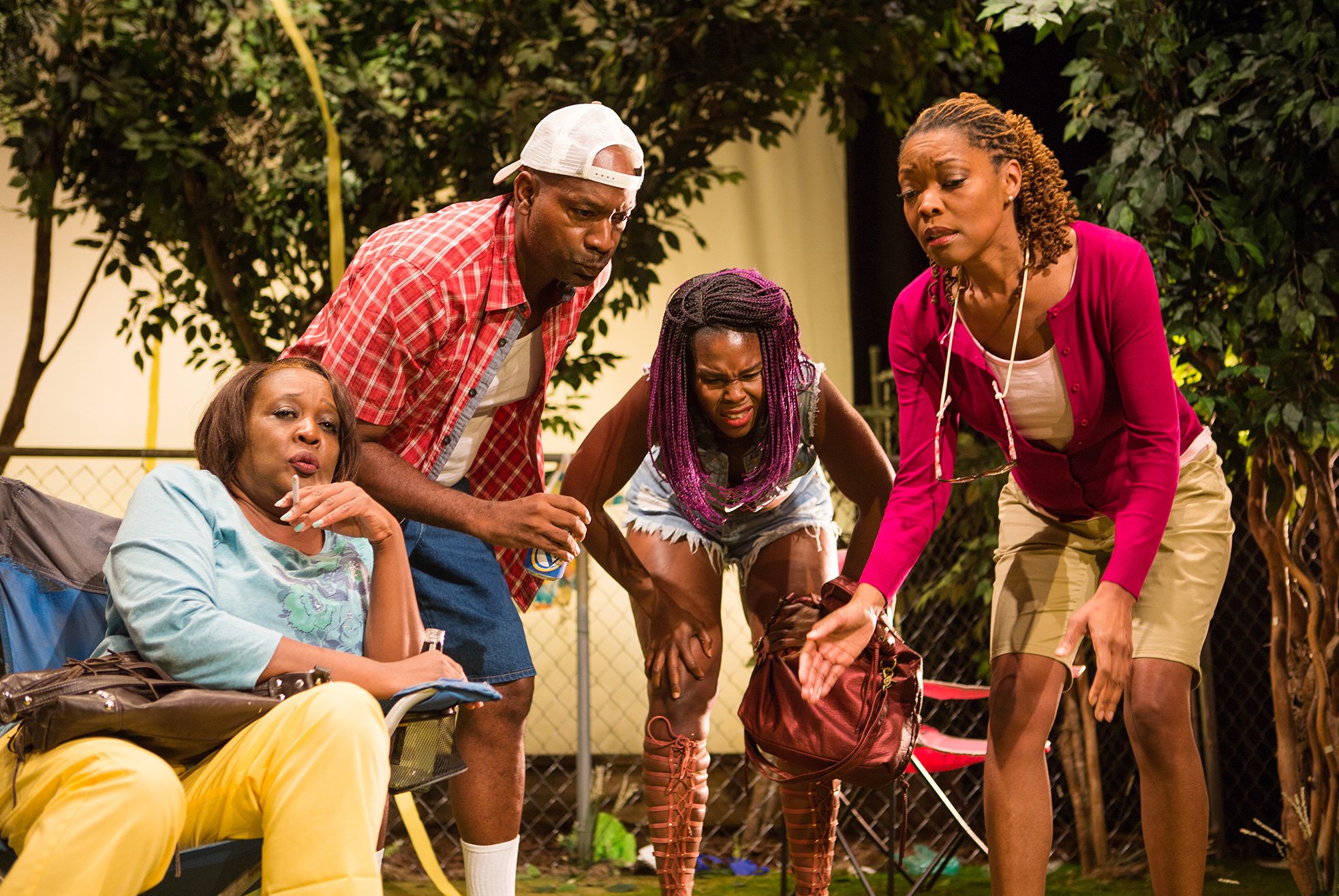
As advertised, nearly every piece of marketing for Robert O’Hara’s “Barbecue” at the San Francisco Playhouse hinges itself upon the discussion of race — a grill skewer held by a white hand and a black hand, the description of the play as a production that “overturns race, poverty, and the American family in hilarious and incisive fashion.” Unfortunately, I was initially disappointed by how little the production touched on race. With a white cast matched character-for-character with a black cast, the ability for “Barbecue” to expand upon its narrative basis seemed misused. Nevertheless, “Barbecue” shines so well during plenty of other moments that I just simply wish that I hadn’t felt misled by the content.
Directed by and also starring Margo Hall, “Barbecue” centers around a family who stages an intervention disguised as a barbecue in a park for an alcoholic, drug-abusing family member — the catch is that with every scene, the cast alternates between a black family and a white family. While the comedic timing for each family was quite incredible, the switch between black and white families didn’t seem to serve any sort of strong artistic purpose even in the stronger second act. With a massive twist at the end of the first half, I began to question the first act’s relevance to the second half of “Barbecue” other than as a long, winding humorous exposition. More activism-related buzzwords tossed into the second act began to help me understand the purpose of the black/white family switch but failed to make an impression.
As a note, there’s nothing wrong with productions that don’t have an activist edge, and I feel that “Barbecue” falls in this category. I want to emphasize the extremely strong comedic inventiveness of this production — by the end, I was satisfied by how the narrative came together very cohesively. With viciously direct swipes at the whiteness of Hollywood at the end of the play that infringe upon the realism of the world within the play, “Barbecue” only truly peaks in the last 10 minutes. It’s tough to truly explain how the second act fits into the production as a whole without giving away the entirety of the plot, but all I can say is that the deeper, more personal nature of the latter half adds much more nuance to the comedic development than anything else in the first act. Once you reach the end, each character’s true nature is fully revealed, creating a wholly fulfilling return to the excitement of the beginning of the play.
A fascinating aspect of “Barbecue” is how it depicts storytelling. With the aforementioned twist, the second half redefines how the audience sees the first act with a single line, and the second act delves even further into the truth behind stories and whether stories really need to be real to be meaningful or powerful. “Barbecue” powerfully questions the reality behind reality itself — what does it mean to use, manipulate or take advantage of stories for the sake of economic or personal gain?
With “Barbecue,” set your sights on strong, well-developed humor rather than a true discussion centered on a discussion of race. With this, you’ll get to fully enjoy the creative, highly innovative comedy embedded into the nature of the premise. Make sure to catch “Barbecue” in San Francisco before it closes — you won’t regret it.
“Barbecue” is playing at the San Francisco Playhouse through November 11.
Contact Olivia Popp at oliviapopp ‘at’ stanford.edu.
